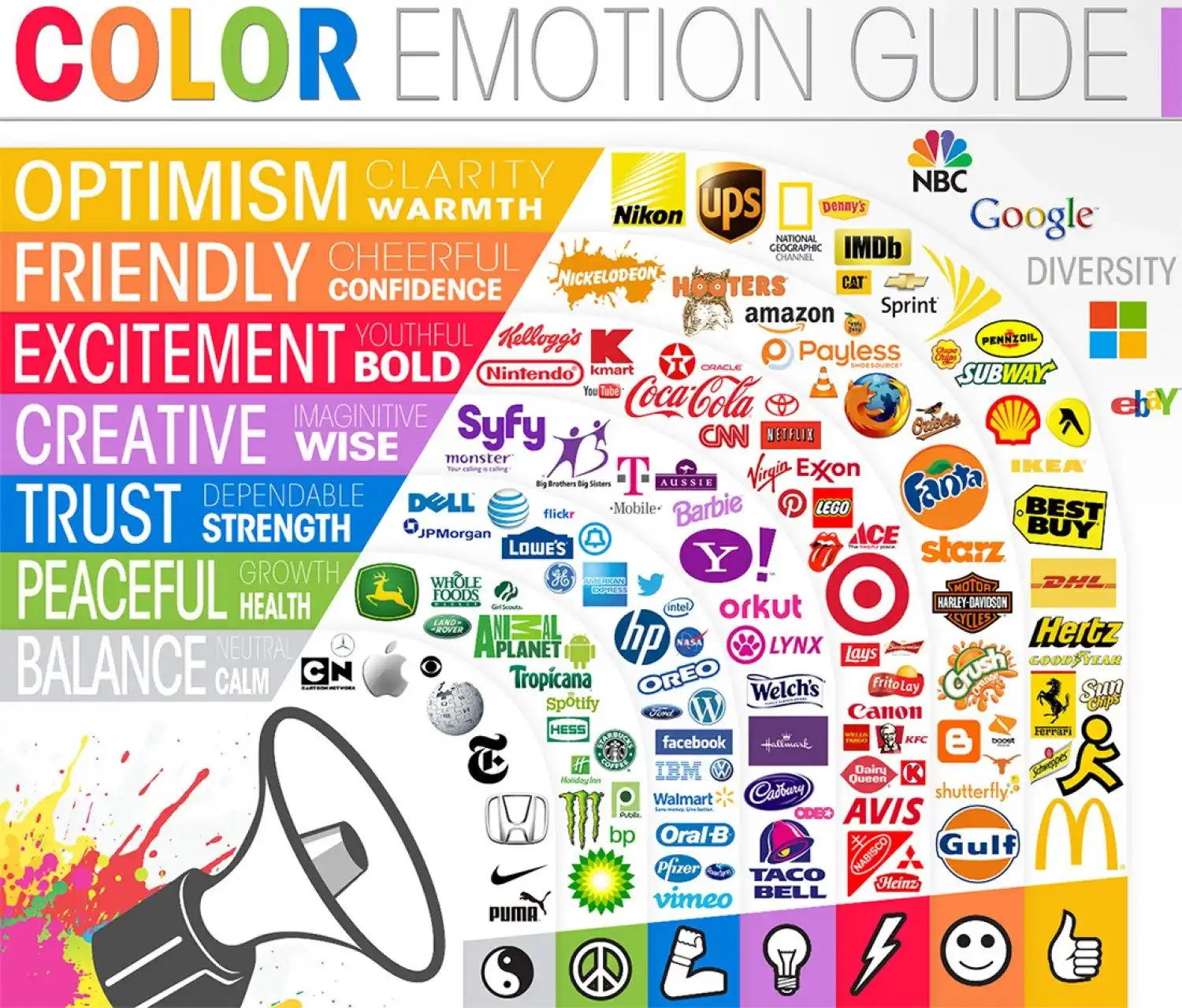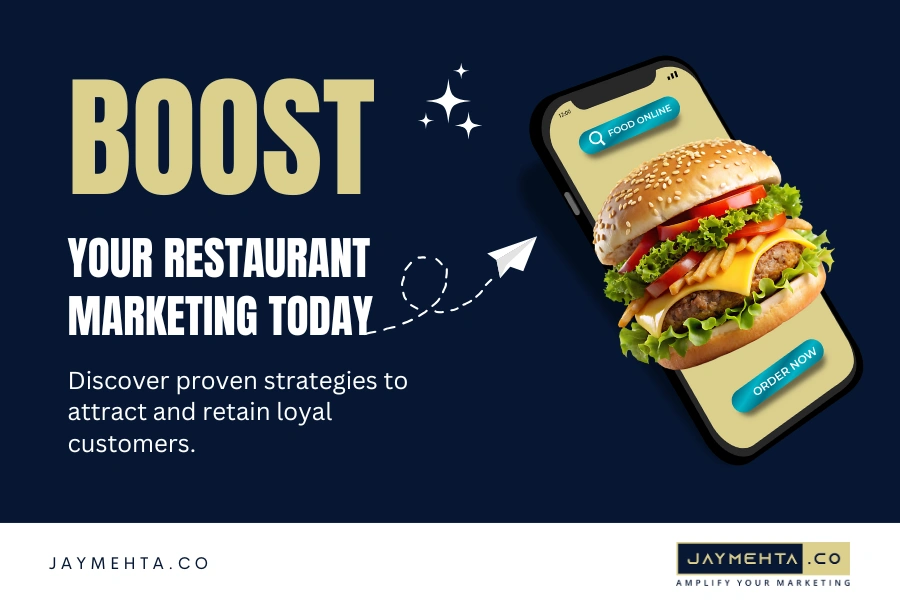Coca-Cola – an iconic name that has gracefully withstood the test of time and serves as a prime example of brand recognition's influence in the marketing world. Those who aren't particularly fans of the fizzy stuff can spot that Coca-Cola logo from a mile away.
You know how that glass bottle looks, and you've likely heard the legends about it being Santa's drink of choice. It's no wonder marketers everywhere take a page out of Coca-Cola's book – their logo is practically the king of timeless cool.
It is unrealistic to expect every business to achieve the remarkable success of Coca-Cola. After all, they have a history spanning over a century and are currently valued at an astonishing $190 billion. Furthermore, their operations are impressive, with a team of more than 63,000 dedicated individuals.
The statement, 'If you're not on the internet, you don't exist,' may sound dramatic, but it's true. In today's digital age, if your business doesn't appear when someone searches for it on Google, it could be in serious trouble. Yes, it is a bitter truth.
You may already be aware of this fact, but it's worth mentioning that 77% of marketers believe that branding is paramount to growing your business. Amazon founder Jeff Bezos once said, "Your brand is what other people say about you when you're not in the room." This highlights the importance of building a strong brand that accurately represents your business.
Thus, building a killer online brand is not just important; it's fundamental for any business. It's what sets your business apart and gives it a voice. It's what makes people think of your business when they need something you have to offer.
First, let's understand what successful brand building entails and then learn strategies to enhance your brand's identity.
To help you get ahead, we have compiled all aspects of personal branding in this comprehensive guide. Pursue it to improve your online branding techniques. It's necessary!
What Exactly is a 'Brand'?

A brand isn't simply a recognizable name and logo distinguishing you in a crowded market. Your brand encompasses how individuals perceive your business across all touchpoints—the impressions under your control and those beyond your influence.
When you ponder this, individuals also have their brands. Each person possesses a name, a face, a style, a mode of communication, and leaves distinct impressions on different individuals. Moreover, there's the chatter about us when we're not present.
Similarly, businesses possess names, products, logos, colors, fonts, voices, and reputations that they must manage. These elements collectively define their identity and shape how they're perceived.
Building a brand necessitates unwavering consistency and maintaining that uniformity as you integrate your brand into every facet of your business. It all begins with establishing the character of that consistency and the emotions it wants to evoke.
What Is Brand Building?
Brand building involves creating awareness and promoting a company's services through direct advertising campaigns or sponsorship. Brand-building strategies aim to connect consumers with the brand, offering them value and enabling them to understand, resonate with, and experience its unique personality.
Digital marketers shoulder a substantial responsibility, which is promoting a business effectively. To achieve this, they must take every necessary step to transform a business into a brand that attracts leads.
This often involves close collaboration with design, content marketing, and social media marketing departments. Business success will likely follow when these teams work together to enhance the brand image.
As a digital marketer, you should consider these questions:
Are higher search engine rankings valuable if people cannot recognize your brand?
-
Is your brand perceived favorably compared to major industry competitors?
-
Are you prioritizing using keywords in your domain name, or are you effectively promoting your brand's narrative, as exemplified by powerhouse brands like Starbucks, McDonald's, and Nike?
-
Are people actively searching for your brand name on Google?
The underlying reason for these questions is to emphasize that achieving success with your digital marketing objectives requires effectively transforming a business into a recognizable and influential brand.
Now, let's explore how to achieve this goal!
How to Do Powerful Online Brand Building?

The brand building encompasses various strategies that can be categorized into three main areas: brand strategy, brand identity, and brand marketing. While these categories share some common ground, they also have distinct features. All three components are crucial for establishing a compelling brand image.
-
Brand Strategy:
The strategy involves crafting a high-level vision for your brand, setting priorities, and devising appropriate plans. Consistency is pivotal in building a strong brand, underscoring the importance of developing a well-defined plan before delving into the foundational aspects.
Consider whether you envision your brand with a professional and authoritative tone or a casual, conversational one. It's also essential to define the demographics you intend to target. These clarifications lay the groundwork for initiating the initial stages of brand development.
-
Brand Identity:
Your brand identity entails translating fundamental concepts into actionable practices. This encompasses concrete tasks such as selecting a color palette, shaping brand messaging, and more. These elements should be cohesive to enable audiences to identify your brand across various contexts and platforms.
-
Brand Marketing:
Brand marketing involves leveraging your established strategy and identity to achieve optimal business outcomes. This phase focuses on determining which social media platforms are best suited for targeting your audience and how to allocate advertising budgets effectively. Skilled marketers who understand the nuances of crafting messaging and executing campaigns should handle this aspect.
How to Build an Online Brand Strategy?

Achieving prominence on the internet doesn't come with a quick fix. However, online branding empowers you to set yourself apart and establish connections with your intended audience.
Furthermore, online branding provides an opportunity to develop trust and brand authority. Maintaining consistent branding across all your marketing channels, including websites, social media, and newsletters, presents your business as well-established.
Focusing on online branding can also increase customer loyalty. It's quite remarkable! But how?
Establishing a clear and distinct online brand identity is crucial for building connections and engagement with targeted audiences and potential clients. This helps customers identify and remember your business in a competitive landscape, leading to better brand recognition and customer loyalty.
Moreover, effective online branding can improve your search engine rankings, making your website more discoverable in web searches.
Ultimately, building a strong online brand enables you to establish yourself as a leader in your industry and gain the trust of potential customers and peers.
Breaking down building a brand into manageable steps can make it less daunting. Let's explore the practical process of brand building in more detail.
-
Building a Strong Digital Brand
Are you familiar with the brand identity concept? But, it's how a company forges a distinctive brand image and personality using visual and verbal elements.
These elements encompass logos, typography, color schemes, packaging, and messaging. How a company's employees engage with customers and the overall aura contribute to its brand identity.
For example, Coca-Cola or Apple; even if you've never heard the term, you're undoubtedly acquainted with their brand identities.
The brand identity encompasses more than just the visual aspects; it also includes:
-
Your Company Bio:This is the story of your company's journey, values, and mission.
-
Tagline:A concise and memorable phrase encapsulating your brand's essence.
-
Graphics:Visual elements like illustrations or icons that reinforce your brand's identity.
Whether you're an established business seeking to revamp your brand identity or a freshly launched startup, the dividends of building a robust brand identity can be substantial. With that in mind, let's consider what you need to consider when creating an effective brand identity that resonates with your target audience.
-
Understand Your Audience
Understanding your audience's needs, desires, and pain points provides the foundation for creating a brand identity that resonates with your target customers. Here are some methods for gaining insight into your ideal customers' minds:
-
Creating customer personas
-
Conducting surveys and focus groups
-
Monitoring social media interactions.
Once you've gained a deeper understanding of your audience, you can tailor your communication tone to speak directly to them. For instance, you might adopt a more casual and playful tone if your target audience is younger.
Conversely, a polished and sleek style may be more appropriate if you appeal to business-oriented professionals.
-
-
Define Your Unique Value Proposition
Developing a unique value proposition (UVP) is a powerful method for establishing brand authority. This sets you apart from competitors and articulates your brand's distinctive benefits. In your UVP, consider these aspects:
-
Elaborate on your offer.
-
Explain what sets your product/service apart from others.
-
Convey why customers should opt for your brand.
-
Emphasize benefits over features.
-
Ensure your UVP aligns with your brand's values and mission to convey authenticity.
For example, if you're launching an online marketing consultancy and want to differentiate yourself beyond social media marketing, you could frame your UVP like this:
"At our digital marketing agency, our focus extends beyond simply enhancing online traffic or search engine rankings. Instead, we adopt a holistic online business marketing approach, combining creativity, strategy, and data-driven insights to help you achieve your specific business objectives."
-
-
Craft a Memorable Name, Logo design, and Brand Elements.
A pivotal component of your online branding strategy and brand authority development involves refining your brand elements, such as designing an impactful logo and devising an unforgettable brand name.
Combining these elements creates a consistent and recognizable brand image across all marketing channels, including websites and social media profiles. This consistency plays a pivotal role in boosting sales, as it has been shown that brand consistency can lead to up to a 20 %increase in revenue.
This commitment to consistency is a hallmark of successful brands.
See the examples below:
These brands have earned recognition and authority in their respective industries through impressive efforts.
In addition to these aspects, consider focusing on other elements such as color schemes, typography, and tone of voice to reinforce your brand identity.
-
Choose The Right Brand Name:
Naming your brand is a pivotal decision in your branding journey. Many top brand names are either concise abbreviations or consist of one to two memorable and easily recalled words.
When creating a brand name, consider employing various techniques, such as.
-
Inventing New Words,Just like Adidas did.
-
Drawing Inspiration from Figures:Nike derives its name from Greek mythology's winged goddess of victory.
-
Using Relevant Words or Phrases:As exemplified by Mastercard, a brand associated with credit and debit cards.
-
Combining Words:A Strategy Embraced by Facebook.
-
Altering Words:Like the transformation seen in the name Tumblr.
Before finalizing a name, conduct a thorough Google search to ensure minimal competition. Opting for a name too similar to a competitor's can divert traffic away from your brand and towards theirs. Avoiding such similarities is key to your brand's success and distinctiveness.
-
-
Craft Your Brand Story:
Integrating storytelling into your business marketing plan is a powerful way to establish a personal connection with your audience. This approach deeply resonates with customers, making it an effective tool for engaging with them.
This approach begins with a character who, in this case, represents your customer facing a problem. This character then encounters a guide who provides them with a plan and a compelling call to action, ultimately steering them away from future failure.
This straightforward formula can be effectively applied by positioning your brand as the guiding force and your unique value proposition as the plan.
Adding storytelling to your brand's mission statement can convey your values and purpose. This can be seamlessly integrated into your advertising and website pages to create a cohesive brand image.
-
-
Building Iconic Brand Authority in the Digital Age
In the rapidly evolving online world, brand authority has become more significant. It allows businesses to position themselves as trusted sources of information and expertise, becoming their target audience's go-to destination.
Let's delve into some crafty methods to establish brand authority, with a special focus on the power of blogging.
-
Start a Blog with Exceptional Content
Blogs have become invaluable assets for brands for several reasons. Firstly, search engines strongly prefer fresh, original content that is consistently updated. If boosting your search engine ranking is a goal, consider platforms like WordPress, known for its SEO-friendly structure and the array of plug-ins and themes that further enhance SEO efforts.
Secondly, blogs supply an abundance of shareable content for social media networks. It's evident that solely sharing product or sales pages won't garner much traction. In contrast, sharing well-researched blog posts about your industry can attract the right audience, driving traffic and click-throughs.
Lastly, high-quality blogs are instrumental in elevating your brand's authority within its niche. This goes beyond conventional posts and involves the creation of insightful content such as tutorials, infographics, videos, and industry interviews. This quality content showcases your brand's expertise and instills confidence in consumers, potentially leading them to purchase decisions.
The choice of blog topics largely hinges on your target audience. Imagine running a bait shop – while writing about worms and crickets might not draw much attention, broader subjects could captivate a wider audience. For instance, discussing related TV shows within your niche, like "Deadliest Catch" or "River Monsters," could resonate well.
Alternatively, consider crafting content like
Unearthing the Best Open Cafes and Restaurant Venues in Cayman
Essential Etery Accessories for Every Restaurant Owner (This offers an opportunity to link to your services.)
Decoding the Tactics of Etery Knots: Identifying the Most Effective Approach
The key lies in thinking expansively!
-
Embrace Guest Blogging as a Strategy
An integral facet of online branding is expanding your reach to new audiences. Guest blogging on well-established platforms allows you to convey your brand's authority to consumers within your niche.
Here's a step-by-step guide to mastering guest blogging effectively:
-
Finding the Ideal Blogs for Guest Posts
For a successful guest post, finding blogs with a large audience that aligns with your brand and receives significant traffic and social shares is important.
There are directories like Technorati, PostRank, or Alltop that can help you find guest posting opportunities in your industry or niche. Alternatively, conducting a Google search can also help you find potential opportunities.
-
Understanding the Blog's Guest Blogging Policies
If you identify a blog that accepts guest bloggers, navigate to their guest post policy page. If you can't find it readily through navigation or the search function, a simple Google search using "guest post" and the blog's name should yield the necessary information.
Once you've found the policy page or post, adhere to the guidelines for submitting your guest post.
-
Building a Relationship with the Blog Owner
Before pitching your content:
-
Take the time to connect with the blog owner.
-
Follow them on social media platforms like Twitter and Facebook and engage with their content.
-
Comment thoughtfully on their recent posts, demonstrating your writing skills and industry expertise.
Doing this establishes a rapport with the blog owner, facilitating the guest posting process.
-
-
Researching and Pitching Compelling Topics
Guest blogging can greatly increase your brand's online influence and visibility. You can begin by conducting a simple Google search using your niche and "guest post" to find appropriate blogs. After identifying potential blogs, you can generate guest post ideas using simple techniques.
Reading their guidelines, which often outline preferred post types and provide examples.
Analyzing the blog's content to identify trending topics and popular subjects.
Leveraging tools like Google Alerts or BuzzSumo to discover current and trending content ideas.
Exploring social listening tools like AnswerThePublic to understand what people are searching for within your niche.
It's always a good idea to double-check if the blog owner wants a full post or just a pitch before you reach out to them. You can provide what exactly is needed without wasting anyone's time.
Pro Tip: Send multiple ideas. If the blog owner requests a full post but doesn't accept it, consider publishing it on platforms like Medium to maintain its utility in your online branding strategy and bolster your brand authority within your niche.
-
Crafting Exceptional Quality Content
Once your guest post idea is approved, your next step is crafting remarkable content. Review the guidelines to ensure alignment with the blog's requirements. When creating compelling guest post content, focus on
Providing value to the reader rather than self-promotion.
Adhering to the blog's formatting style.
Including internal and external links, as stipulated by most blogs.
Incorporating a compelling call to action to encourage reader engagement.
Crafting a brief yet informative author bio that showcases your expertise and includes relevant web links and social media profiles.
Here's an example of a well-structured author bio: "Jay Mehta is a digital marketing expert with over 15 years of experience. Specializing in search engine optimization, Jay has assisted numerous businesses in improving their SERPs, boosting traffic, and enhancing conversions. Discover more about his digital marketing services at [www.jaymehta.co] and connect with Jay on social media at [list social sites]."
Incorporate links in your bio per the blog's guidelines and in line with the practices of previous guest authors.
In short, building powerful brand authority in this digital era is a multifaceted endeavor, with blogging and guest posting playing pivotal roles.
By consistently delivering valuable content and adhering to best practices in guest posting, you can solidify your brand's authority and presence in your niche, ultimately attracting and retaining loyal customers.
-
-
Remember to Engage in Blog Commenting
Engaging in blog commenting is an excellent strategy for enhancing your brand and establishing authority within your niche. You can use some resources mentioned in the 'research and pitch great topic ideas' section to discover trending or recently published blogs. This approach allows you to interact with the freshest content, increasing the visibility of your comments.
Additionally, consider subscribing to the blog's newsletter to stay updated on their latest posts.
When a new blog post is published, take the time to read it thoroughly and leave a valuable comment. The purpose of blog commenting is not primarily link-building but to enhance your brand's online presence and establish yourself as an expert in your industry.
You may refer to previous comments on the blog to guide your approach and review the comment guidelines to ensure your contribution aligns with acceptable standards.
-
Crafting an Effective Social Media Marketing Strategy
Businesses can greatly benefit from social media platforms like Facebook, Twitter, Instagram, and LinkedIn by connecting with their target audiences, raising brand awareness, and increasing conversions. Achieving your goals begins with understanding your audience.
Hence, it's crucial to deploy a strong social media marketing strategy. If you've been in business for a while, you may have already created a customer persona. If not, various templates are available online to assist you.
Following these steps will enable you to create a potent social media strategy:
-
Choose the Right Social Media Platforms
Not all social platforms are equal. Carefully consider which platforms your target audience frequents the most and focus your efforts there.
-
Set Clear Goals
It's vital to be strategic and precisely define what you aim to accomplish rather than merely set your goals. Are you looking for increased conversions or perhaps more click-throughs? Set SMART goals (Specific, Measurable, Achievable, Relevant, and Time-bound) that are easily measurable.
-
Develop a Content Strategy
Determine the types of content to create, the frequency of posting, and the tone and voice to employ. Ensure that your content aligns seamlessly with your overall brand message and values. It's beneficial to establish a content calendar to stay on track.
-
Engage Actively with Your Audience
Responsiveness is key. Promptly and authentically respond to comments, messages, and mentions to foster genuine relationships with your followers.
-
Track and Analyze Results
Utilize tools such as Google Analytics, social media insights, and third-party dashboards to gauge the success of your social media efforts over time.
Implementing these steps will allow you to create a social media marketing strategy that resonates with your audience and helps you achieve your business objectives.
-
-
Collaborate With Industry Experts
When building your brand authority, collaborating with experts and digital marketers will emerge as a game-changer attributing to your online brand-building efforts.
Experts often boast of substantial followings and positioning themselves as thought leaders. By partnering with them, you can tap into their expertise, bolster your brand authority, and enhance your business's credibility.
Collaborating with digital marketers in your niche can be immensely beneficial. They often have large, loyal audiences and can effectively promote your brand to new demographics.
Partnering with influencers can reinforce brand values, drive engagement, and strengthen online communities. Digital marketers frequently work with influencers to achieve these goals, reaching new demographics and enhancing brand engagement.
-
Engage Actively with Your Audience
If you're seeking a straightforward way to establish a robust online brand while solidifying brand authority, active engagement with your current audience is the answer. This engagement can significantly enhance customer loyalty and advocacy, creating genuine fans who eagerly endorse your brand.
How you engage with your audience is a matter of choice. Of course, social media platforms are the go-to for brand-building for many businesses. If you're searching for a concise and effective way to build a profound online brand while establishing your brand authority, consider the following tips:
Moreover, you can organize contests, encourage user-generated content, or initiate a retargeting campaign. Additionally, consider the format of your online content, whether it be blog posts, newsletters, or videos. Opt for the format that resonates most effectively with your audience, and infuse your branding with personal touches wherever possible.
-
Showcase Reviews, Testimonials, and Case Studies
Incorporating social proof through reviews, testimonials, and case studies is a core element in your online branding strategy. If you aim to persuade consumers to select your product or service over competitors, these forms of social proof can bolster your brand authority, establish credibility, and foster trust.
Reviews hold significant importance because modern consumers often begin their journey by searching online for others' opinions about a brand. Positive reviews lend an air of reliability and trustworthiness to your brand, while even negative reviews can be turned positive by demonstrating your commitment to addressing customer feedback.
Equally essential are testimonials and case studies, offering in-depth accounts of how your products or services have helped previous customers overcome challenges and achieve their goals. These resources showcase your expertise and play a pivotal role in building trust within your audience.
How Can You Promote Your Brand?

Is this step similar to step eight? Well, there are similarities, but they're not identical. Social media undoubtedly stands as one of the primary methods for brand promotion - it even has its dedicated section. However, it's essential to recognize that it's not the sole avenue for brand promotion.
The marketing realm encompasses many strategies, tips, and techniques to ensure your business gains exposure to as broad an audience as possible. It's crucial to remember that indiscriminately flinging flyers into the streets for distribution isn't an effective option. As discussed earlier, engaging your target audience is key to successful marketing.
Here are some key methods to promote your brand:
-
Email Marketing
This is a significant avenue - a whopping 92% of adults in the US use email, providing a substantial market to explore. Website builders like Wix and Squarespace come equipped with built-in email campaign features, simplifying the task of maintaining brand consistency in design.
-
Content Marketing
Blogging can work wonders for your brand. Not only does it provide you with regular content to share on social media and in emails, but it also establishes your expertise in your field, earning the trust of both people and search engines like Google. Moreover, blogging appeals to a diverse audience.
-
Event Marketing
If your business operates locally, consider sponsoring a local event. This can help you build a positive brand image within your community. Alternatively, you can host your events to engage with your audience on a more personal, community-oriented level.
-
Influencer Marketing
While endorsements from high-profile celebrities might be beyond the reach of most startups, any form of endorsement can significantly boost your brand's image. Another effective approach is collaborating with influencers who resonate with your target audience.
Monitoring Your Brand Authority

In today's online arena, establishing a robust brand presence is paramount. Equally significant is monitoring your brand authority to ensure its continued success.
By engaging in brand authority monitoring, you unlock valuable insights into your audience's perceptions of your brand. These insights are a foundation for refining your online brand strategies based on genuine customer feedback.
Multiple effective methods exist for tracking brand authority.
Firstly, leveraging analytics empowers your business with indispensable data, facilitating a comprehensive understanding of what aspects are effective and where improvements are needed. Metrics such as website traffic, click-through rates, conversion rates, social media engagement, and customer satisfaction levels provide the necessary information for making well-informed decisions regarding your online branding approach.
Furthermore, analytics offer the advantage of enhanced audience comprehension, as they allow you to segment demographics, including geographical location and interests. This segmentation capability empowers the creation of precisely targeted brand strategies tailored to diverse audience segments.
Another pivotal tool in brand monitoring is social listening. This technique is instrumental in identifying issues such as negative reviews and potentially detrimental comments, enabling you to address them proactively.
Brand monitoring empowers you to take a proactive stance toward shaping your brand's image and facilitates the adjustment of your online brand strategies. Moreover, it contributes to heightened customer satisfaction and a competitive advantage within your market.
Don’t Halt Your Progress!
This marks just the initial phase of your brand's journey. Completing all the steps doesn't equate to the finalization of your brand. The ultimate stride involves continuous advancement – a perpetual process of refining, expanding, and enhancing your brand identity.
Tools like Google Analytics prove invaluable in gauging your website’s metrics: visitor duration, geographical origins, and the most frequented pages.
Yet, bear in mind that only your audience can gauge your brand's triumph. After all, your brand is fundamentally the perception people harbor about your business. While you can shape this perception, ensuring its alignment with your intentions is vital!
Once your brand debuts, amass feedback to fathom the audience's reception. Complacency has no place; delve into how you can achieve betterment, pinpoint strengths, and increase success throughout every facet of your brand.
Wrap-up
You can establish your brand's authority through these ingenious ways. You can inspire your audience and become more than just a business by utilizing content marketing, email marketing, and social media marketing. This will make you a trusted ally and create an invincible identity that sets your brand apart from competitors.
Building brand authority requires dedication and persistence. By combining exclusive content, storytelling, and interactive experiences, your brand can become a symbol of trust, respect, and admiration. Remember, brand authority doesn't happen overnight, but with dedication and persistence, your efforts will yield remarkable results that will set your brand apart from the competition.
So, why wait? Start using these creative tricks today and see your brand's reputation improve
Digital branding aims to establish a loyal customer base that trusts your products and continues to return. To achieve this, maintaining authenticity and truthfulness in your branding is the key to building customer trust. Given the vast and expansive nature of the internet, the possibilities for online branding for your business are endless.
Need a hand with your online branding for your business? Are you looking for someone to handle the strategic work of designing your logo, website, and more? Look no further than jaymehta.co! We've got you covered with all of your branding needs.












